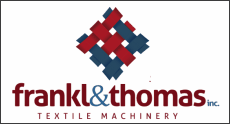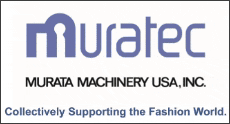
Posted April 9, 2020
By Devin Steele (DSteele@eTextileCommunications.com)
For weeks now, the U.S. textile industry has rallied around the call for personal protective equipment (PPE) during this unprecedented crisis brought on by COVID-19.
As you well know, the industry plays a vital role in the health, safety and wellbeing of our citizens, and many in the general populace are beginning to realize this as U.S. textiles once again rises to a major challenge – much as it did during WWII.
Here, in our continuing series on this effort, we are spotlighting companies that virtually “dropped everything” to focus on providing PPE for frontline healthcare employees and the public.
Parkdale
Parkdale, the largest yarn spinner in the U.S., spearheaded the creation of the largest coalition of U.S. textile/apparel makers now involved in PPE production. The collaboration came about when Andy Warlick, the company’s chairman & CEO, received a call from Dr. Peter Navarro, assistant to President Trump and director of the Office of Trade and Manufacturing Policy, on March 16.
Navarro asked Warlick about making face masks, and they discussed putting together an amalgamation of companies to get things going, Warlick told eTC.
“Hanes was the most advanced at the time, and we decided that we should all get behind what they had already done and cut the development and approval time,” Warlick said. “The work that Hanes had done was critical because we had a standard that we could all get behind and that was the only way we could launch quickly and make the same mask in large quantities. Everyone agreed, and all worked together for the common good.”
The coalition was put together in three days, but it took another 13 days to get the go-ahead from Health & Human Services (HHS) and FEMA.
The coalition be making 500 million masks, which will be shipped to every household in America by the U.S. Postal Service, Warlick said. Most of the companies in the coalition, in addition to their own production, are managing a supply chain with additional companies, he added. The Food & Drug Administration (FDA), HHS, FEMA and the White House have all been involved in the effort.
“We have our own supply chain and we are responsible for millions of masks, as are the other members of the coalition,” he said.
The partners have connected daily, including weekends and at night, during the initial stages of the project, Warlick added.
“The textile industry came to America's need and we did what we should have done and that is simply the right thing,” he said.
Other charter members of the coalition include American Giant, Los Angeles Apparel, AST Sportswear, Sanmar, America Knits, Beverly Knits and Riegel Linen, and others have come on board.
LACorp
Cut-and-sew specialist LACorp, based in Lebanon, Va., is currently producing face masks and reusable gowns and is working on production lines for disposable gowns, other types of N95 masks and waterproof hospital bed covers, according to Jeoff Bodenhorst Jr., company president who also serves as SEAMS’ president.
In answering the call for PPE during this crisis, LACorp has pivoted almost 90 percent of all of its production to switch to these endeavors, he said.
“We have spent the past three weeks educating ourselves on the needs, constructions and all other aspects of these products,” Bodenhorst said.
The company has retained full staff and is working more hours per week now than it was in February, he added.
LACorp is part of a complete network of industry partners, led by yarn spinner Parkdale, that is involved in the project. The coalition has been the source of much collaboration through previous networking events, Bodenhorst said.
“Thanks to SEAMS, I have come to know so many different individuals with focuses on many different sewn products,” he said. “These contacts have been tremendously helpful in assisting PPE production.”
The only gap LACorp is currently encountering in this effort is available labor, he noted.
“We have triple the demand for what labor we can offer,” he said. “We realize that the immediate need is temporary so that while we may hire a few individuals, there is not enough certainty or forward plans to be able to justify any large-scale buildouts or investments.”
As a contractor, LACorp isn’t aware of where many of these items will be distributed, but it is pleased to be helping to support these needs, he added.
“My employees are very proud to be involved in these efforts, supporting their neighbors and communities across America,” Bodenhorst said. “I am very optimistic that this endeavor will lead to a different mindset as we all recover from the virus.”
He added: “It is our hope that so much attention is being directed towards domestic sourcing that some of these supply chains or government agencies will look to secure a portion of their sourcing needs on a continued basis moving forward, becoming less dependent upon the Asian sourcing model.”
Hamrick Mills
Hamrick Mills, a 120-year-old fabric maker based in Gaffney, S.C., is producing fabrics that can and are being utilized in scrubs, gowns, masks and other PPE items.
Most of these products already were a part of the company’s product line, but it has modified some basic constructions in order to make more specific fabrics for these applications, according to Jim Hopkins, director of Sales and Marketing.
“Essentially, we have taken currently running warp conditions and modified the construction and/or yarn makeup to create the desired fabric,” he said. “Thus far, the transition has been relatively quick with a very fast learning curve. The thought process for the top management was simple: ‘We are in a time of crisis and need, so we will do whatever we can to assist the efforts to protect and supply those who need it the most.’ ”
Hamrick Mills, deemed an Essential Business in the State of South Carolina, has remained operational with its current employee base, he said. It continues to run 24 hours, five days a week, which is its typical schedule during “normal” times, he added.
“As a company, if we are unable to provide a specific fabric a potential customer may need, we will do our best to recommend other companies that may be able to assist them,” said Hamrick sales rep Roy Lockett. “Additionally, we often refer them to dyers and finishers in the region that will hopefully have the technical capabilities to meet the fabric specifications required.”
As a greige cloth supplier, its fabrics require additional finishing/processing in order to be viable for the next links in the supply chain, Hopkins said. Though the company doesn’t know specifically where its fabrics will be distributed, it does know to some extent the end use, he noted.
“As a company, we are proud to be able to contribute in a meaningful way to the protection of our fellow citizens, and are sure that each of our employees take great pride in knowing that their efforts are making a difference in the fight against this pandemic,” he said.
Carolina Cotton Works
PPE fabric and garment producers and vendors have kept Carolina Cotton Works (CCW) running seven days per week of late, said Stacey Bridges, sales manager at the 25-year-old Gaffney, S.C.-based company.
CCW, a specialty dyeing and finishing operation, is processing fabrics for masks, gowns and scrubs in various constructions, including cotton, blends and 100 percent polyester, composed of spun and filament yarns. Some are being infused with antimicrobial and DWR (durable water repellent) ingredients.
“We had to pivot and come up with a new set of fabrics,” Bridges said. “We also took current fabrics and added DWR/antimicrobial to change them from fashion and team sport fabrics to PPE fabrics.”
As the COVID-19 pandemic began to spread exponentially, CCW knew it must step up to shift its operations into a PPE focus, he said.
“We knew the market needed masks, gowns and scrubs quickly,” Bridges said. “With all of these being new fabrics, we did not know what to expect. Our chemical vendors were instrumental in taking a large greige bank of apparel fabrics and turning them into PPE fabrics with DWR and antimicrobial treatments. We could not have done it without our current brands and chemical suppliers.”
Early on as business was beginning to fall off, CCW had an initial layoff, but it was able to bring employees back to handle the rising demand, he added.
“Our employees are excited to keep working and be a part of fighting the coronavirus and protecting the hardworking doctors, nurses and everyone involved in the fight,” Bridges said. “We are happy to keep our employees working and helping companies desperate for PPE products. Everyone at CCW is ecstatic to be in a position to protect the ones fighting the coronavirus on the frontlines.”
To handle the business load, the company is running its normal seven days per week but at 75 percent of its normal volume, he reported.
“We just need to spread the word to companies that need fabric,” Bridges said. “Every order is a blessing.”
PPE shortage
Parkdale, LACorp, Carolina Cotton Works, Hamrick Mills among those answering call

Hamrick Mills is producing scrub masks on its newest weaving machine.

PPE coalition leader Parkdale Mills is the largest yarn spinner in the U.S.

PPE fabric and garment producers and vendors have kept Carolina Cotton Works (CCW) running seven days a week.

Hamrick Mills is producing scrub masks on its newest weaving machine.





